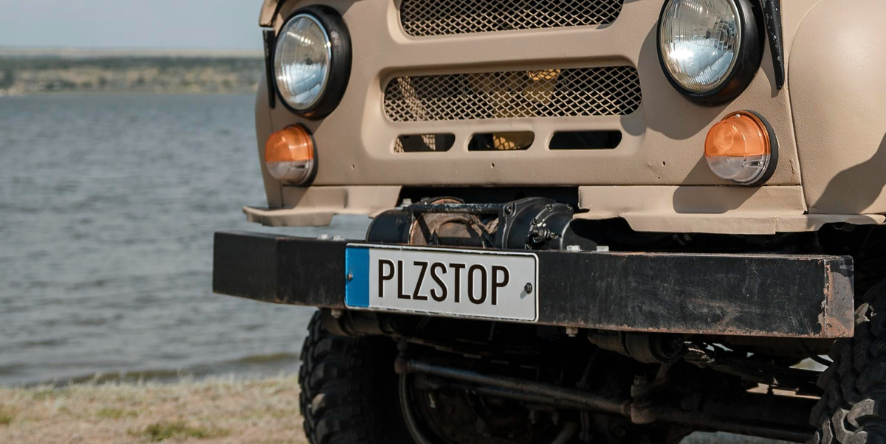Upgrading your 4WD isn’t just about aesthetics; it’s about choosing the right protection for where and how you drive. Whether navigating rugged trails or suburban streets, a bullbar is one of the most practical accessories you can invest in. But when it comes to picking the right one, many drivers face a common dilemma: alloy vs steel bullbar. If you’re in Waitara, Hornsby, or Wahroonga, your decision may come down to factors like terrain, driving style, and personal budget. Each material offers unique benefits, and understanding the differences will help you make a smarter, safer choice for your vehicle. Continue reading to explore both options in detail and make an informed choice.
Why Fit a Bullbar to Your 4WD?
A bull bar is more than just a style upgrade for your 4WD. It mainly protects the front of your vehicle from damage caused by animal strikes, off-road impacts, and minor accidents. A nudge bar also provides a strong place to attach accessories like driving lights, antennas, and winches. This makes it an essential addition for anyone driving off-road or frequently travelling in rural areas.
However, not all bull bars are the same. The material used affects how well they work and how practical they are. This is why choosing between a steel bullbar and an alloy bullbar is crucial.
Steel Bullbar
Steel bull bars are popular for drivers needing strength and durability. Made from heavy-duty steel, these bull bars can handle substantial impacts. They are handy for driving in regional and outback areas where collisions with animals are more likely.
Benefits
- Strong protection: Steel offers excellent protection against large animal strikes and heavy impacts, which is especially important in rural areas.
- Easy to fix: If steel is dented or damaged, it can often be straightened and repaired without entirely replacing it.
- Suitable for winching: These bullbars are strong enough to mount winches and other heavy accessories.
- Reliable in harsh conditions: Steel’s strength makes it a trusted choice for off-road adventures.
Things to Consider
Steel bull bars are strong, but they have some downsides. Because they are heavier, your car’s suspension will be under stress, lowering fuel efficiency. If they are not properly maintained, they may also rust.
However, many drivers in Hornsby and Wahroonga who want maximum protection and don’t mind the extra weight still prefer steel winch bars.
Alloy Bullbar
Consider an alloy bull bar for a lighter option with good protection. These bullbars are made from aluminium or aluminium alloy and provide solid protection while keeping the weight down.
Benefits
- Lightweight Design – Alloy bull bars are lighter than steel ones, supporting your vehicle’s handling and suspension.
- Corrosion Resistant – Alloy materials naturally resist corrosion, making them a good option for coastal areas like Waitara.
- High-Quality Finish – Alloy nudge bars often have polished or powder-coated finishes that make your 4WD look better.
- Easier on GCM – The lighter weight helps keep your vehicle’s Gross Combination Mass (GCM) within limits, which is essential for towing.
Things to Consider
These alloy bull bars are generally less strong than steel, especially in high-speed situations involving animals or winching. Repairing alloy nudge bars can also be more complex and expensive than steel.
An alloy is a good choice for drivers in urban areas or light off-road settings in Waitara or Hornsby, balancing style and practicality.
Alloy vs Steel Bullbar
Now that you know the key differences, the next step is to consider your needs and driving conditions to choose the suitable winch bar.
- If you often drive in regional or outback areas where you might hit animals or need a winch, a steel bull bar is a better choice because it is stronger.
- If you primarily drive in urban or coastal areas like Waitara, Wahroonga, and Hornsby and want to keep your 4WD lightweight while adding protection, an alloy bull bar might be a better option.
- Also, consider your budget. Steel bull bars usually cost less upfront, while alloy winch bars tend to be more expensive because of their finish and resistance to rust.
Choose Bars-N-Racks for Quality Steel and Alloy Bullbars
At Bars-N-Racks, we focus on bull bars made from steel and alloy for vehicles in Hornsby, Waitara, and Wahroonga. We are a family-run firm with more than 25 years of expertise. We offer expert advice, professional installations, and a variety of accessories for every driver, from weekend explorers to hardworking tradies.
If you’re weighing up the pros and cons of an alloy vs steel bullbar, our team is here to help you choose the ideal option for your vehicle. We sell and install only high-quality products that meet Australian Safety Standards and are compatible with airbags. This ensures your 4WD or ute is ready for any challenge, both on and off the road. Choose Bars-N-Racks for friendly service, fair prices, and the confidence of dealing directly with the owner.
Contact us today to prepare your vehicle for your next trip.



